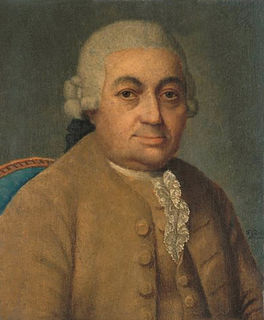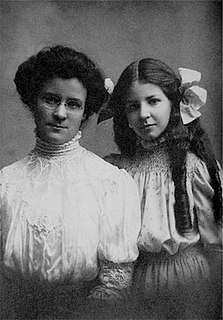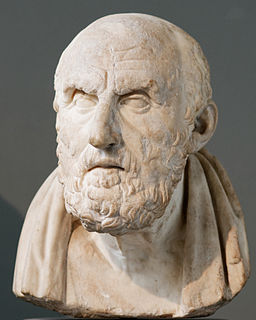A Quote by Ezra Pound
I consider criticism merely a preliminary excitement, a statement of things a writer has to clear up in his own head sometime or other, probably antecedent to writing; of no value unless it come to fruit in the created work later.
Related Quotes
David Foster Wallace is a big idol of mine. His writing is so clear that for years I'd read him and think, My God, he is actually writing the way I think. He's describing the thoughts in my head. And then I realized, No, wait. He's just such a good writer, so transparent and articulate, that when he describes his thoughts, I think they're my own.
The translator ... Peculiar outcast, ghost in the world of literature, recreating in another form something already created, creating and not creating, writing words that are his own and not his own, writing a work not original to him, composing with utmost pains and without recognition of his pains or the fact that the composition really is his own.
A teacher can never truly teach unless he is still learning himself. A lamp can never light another lamp unless it continues to burn its own flame. The teacher who has come to the end of his subject, who has no living traffic with his knowledge but merely repeats his lesson to his students, can only load their minds, he cannot quicken them.
For just as poets love their own works, and fathers their own children, in the same way those who have created a fortune value their money, not merely for its uses, like other persons, but because it is their own production. This makes them moreover disagreeable companions, because they will praise nothing but riches.
The fruit does not come from the outside, the fruit is created within you. Whatever you do, you develop receptivity for it inside yourself. Someone who wants love should give his love. Someone who wants bliss should start sharing his bliss. Someone who wants flowers to shower in his home should shower flowers in other people's homes. There is no other way. So compassion is an emotion that each person has to develop in order to enter into meditation.
The writer is the duelist who never fights at the stated hour, who gathers up an insult, like another curious object, a collector's item, spreads it out on his desk later, and then engages in a duel with it verbally. Some people call it weakness. I call it postponement. What is weakness in the man becomes a quality in the writer. For he preserves, collects what will explode later in his work. That is why the writer is the loneliest man in the world; because he lives, fights, dies, is reborn always alone; all his roles are played behind a curtain. In life he is an incongruous figure.
Its [the anthropological method] power to make us understand the roots from which our civilization has sprung, that it impresses us with the relative value of all forms of culture, and thus serves as a check to an exaggerated valuation of the standpoint of our own period, which we are only too liable to consider the ultimate goal of human evolution, thus depriving ourselves of the benefits to be gained from the teachings of other cultures and hindering an objective criticism of our own work.
If a writer of prose knows enough about what he is writing about he may omit things that he knows and the reader, if the writer is writing truly enough, will have a feeling of those things as strongly as though the writer had stated them. The dignity of movement of an iceberg is due to only one-eighth of it being above water. A writer who omits things because he does not know them only makes hollow places in his writing.







































